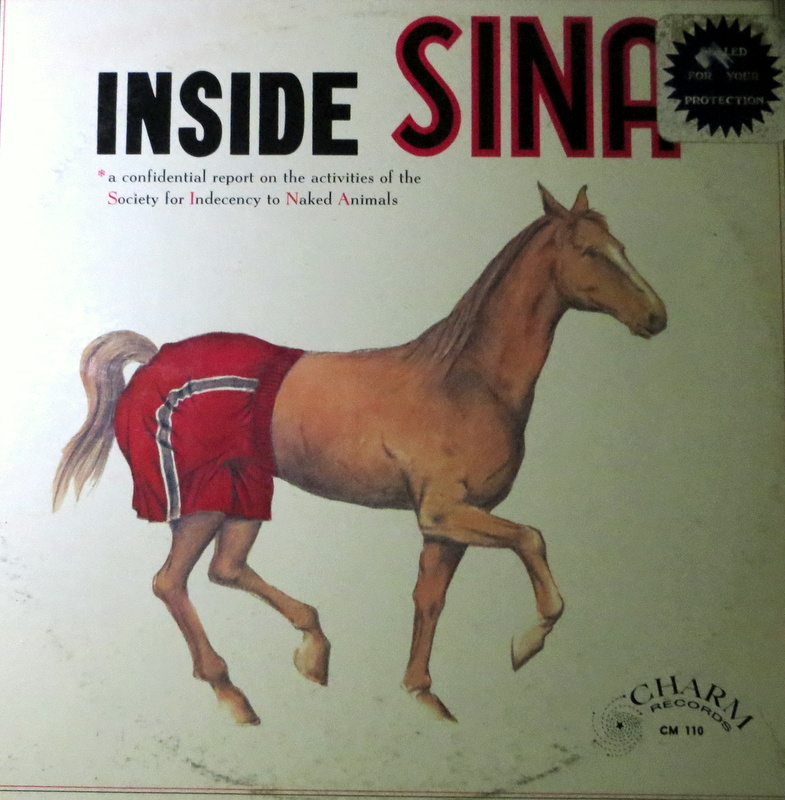Adventures in Red Book Audio: Don’t Play This Disc!
In the early days of CD-ROM gaming, a lot of games made use of Red Book audio, the same audio standard used by audio CDs. This meant that many of these games had crisp, digital audio that was light years ahead of the 16-bit MIDI audio that was commonplace at the time. It also meant that you could put the game disc in your CD player and play the music off of it like a regular CD.
Sadly, that didn’t last long. In Japan, game soundtracks were (and continue to be) a pretty big deal, so allowing gamers to just pop the game disc into their CD player and rock out to the soundtrack kind of cannibalized that market. Additionally, there were some games that could never use Red Book audio because of size limitations, or other technical concerns. Simply put, most games you’ll find for any of the early CD systems have no Red Book audio of any kind.
If you ever tried to put any of these games in your CD player, you would just be treated with one long “data track” where all the game information was stored. In my personal experience, this track was usually silent, but apparently some CD players would try to read these tracks as audio, causing loud digital garbage to be played out of your speakers.
If developers were smart, they would have tried to sell that shit to Lou Reed, but instead, they decided to try their best to make sure that gamers never attempted to put those discs in their CD players, lest they blow speakers or cause some other damage to their home audio system. To this effect, they would usually put warning in instruction booklets advising gamers against putting CD-ROM gems like Gex into their car stereo.
However, to really drive the point home, sometimes they would also stick in an audio warning on the disc itself. It was a tactic that was entirely pointless though, since the “data track” with the potentially damaging audio had to be the first track, meaning that any warning about the hypothetical damage caused by putting the disc in the system would play AFTER the possibly dangerous track had already finished playing.
Also, for me at least, these warnings created the unintended effect of actually making me want to put game discs in my CD player even more, just to find out if they had some weird warning on them. In effect, I was actively doing what they were warning me not to do specifically because they were warning me not to do it.
That was how teenage me stuck it to the man.
Anyways, I was digging through my old games and thought it would be fun to show off some of these goofy warnings, a strange byproduct of a bygone era in gaming. Hope you find them interesting.
Limited Editions. Unlimited Bullshit.
On Monday, Death Waltz Recordings, a small label out of the UK that specializes in vinyl reissues of horror movie soundtracks, announced their biggest release to date; a 2LP edition of the score to John Carpenter’s legendary horror film The Fog. It was a strictly limited release, with just 700 copies on clear vinyl, and only a scant 200 available on pure black vinyl.
The Fog hasn’t been pressed on vinyl in 30+ years, so the announcement made fans of the soundtrack flock to Death Waltz’s official website to score a copy. In fact, so many flew to the site at once that it crashed. Making matters worse, when the site came back up, it was flooded with errors, and many who thought they had the release in their shopping cart had not. By the time it was all sorted out and fans could navigate the site with ease, all copies of the soundtrack had sold out. And since it was a limited edition release, anyone who didn’t snag one of the 900 copies is now out of luck for good. No more are going to be made.
Um…why?
The Mostly Retro Guide to Buying Records in Beijing
Late last year I went to China, (this was right before my Japan trip) and it was awesome. And while you might not think it, the city was a great place to go record shopping.
Sure, it’s no Tokyo (nowhere is) but hidden within the labyrinthine streets and alleys of the massive metropolis are dozens of great stores that sell an amazing variety of LPs, CDs, DVDs and much more. While my trip to the city was rather brief, (and I was battling some bitterly cold weather) I tried my best to take as much of it in as possible, and I think I was able to check out a lot of the best stores the city had to offer. And as information on record stores in China can be pretty hard to come by, I thought I would share what I discovered here.
Microsoft’s “Fuck You” to Consumers – An Obscene Reading of an Obscene Proposal
Whenever a new gaming system is announced, gamers immediately have more questions than the developers are willing to answer. How many games will be coming out at launch? What are the technical specs of the system? Will it be backwards compatible? How much will it cost? And so on and so forth.
But with this upcoming generation gamers have been forced to ask a question that they never thought they’d have to.
Will I have the right to play the game that I bought?
Last month, Microsoft announced its new gaming system, the horribly named Xbox One. In the wake of that announcement, various heads at the company made conflicting statements about the system’s used games policy. Some said used games will remain the same, while others said that gamers wouldn’t be able to trade-in their disc-based games without paying some sort of processing fee. It was a mess.
So last week, Microsoft finally caved to pressure, and issued a statement explaining how the Xbox One will (and won’t) work with used games.
And it’s a bunch of motherfucking bullshit.
On Doug TenNapel, Bigotry and supporting Hate
Doug TenNapel, co-creator of the beloved Earthworm Jim franchise, is currently trying to fund a new game, Armikrog, a spiritual successor to his cult hit The Neverhood.
It’s not surprising. Ever since Double Fine proved that you can bank on gamers’ desire for retro-flavored projects, other developers have been coming out of the woodwork to try and get their own projects funded and released. And good on them. Kickstarter has proven that sometimes people really do put their money where their mouths are, and that when the chance comes along they’re eager to support something they believe in.
But when you support someone’s project, you’re also supporting what they believe in, whether you like it or not. And when you’re supporting Armikrog, you’re supporting the work of a person who has said some truly troubling things.
Moroder 101
Giorgio Moroder is probably the hippest 72-year-old on the planet, thanks to his appearance on Daft Punk’s Random Access Memories. But I’m willing to bet at least a few people who bought the album and listened to the track “Giorgio by Moroder” immediately thought “who the hell is this old guy and why should I care about his life story?”
Well, I’m not going to judge those people. No matter how influential and groundbreaking his work was, Moroder hasn’t exactly been a household name for the past 20 years or so.
But they should know, dammit. And while I’m not going to judge them, I’m sure going to do my best to educate them.
Inside Inside SINA: One of the Strangest Comedy Albums ever Recorded
Comedy albums are a funny thing (har har), and getting them right isn’t easy. I’m a big fan of stand up, but aside from George Carlin, Richard Pryor and a very few select others, I can’t think of many comedians whose albums I’d want to own. It would get old.
Sketch comedy albums are even trickier. Sure, Monty Python is hysterical, but how many times can one listen to the Parrot Sketch before even that becomes a bit boring. A comedy album really has to be unique to catch my attention and hold up to repeated listens.
And Inside SINA might be one of the most unique and unusual comedy albums I own, mostly because most people didn’t even know it was a comedy album when it was first released in 1962.
Shut Up And Listen To The Music – The Death of Concert Etiquette (and How to Save it)
You’re at a concert for a band you love. You’ve waited months, maybe years to see them live. You’re stoked.
The lights dim. The band takes the stage. Immediately they cut into one of their fastest, most intense numbers. The crowd is pumped, they’re jumping up and down. They’re singing along. They’re screaming. It’s everything a concert should be and more.
About three or four songs in the band decides to slow it down a bit, crank out that ballad or quiet acoustic number. It may not be a Top 40 single, it may not be a fan favorite, but you love it.
And that’s when you hear it.
Not the song, but the assholes behind you babbling up a storm.
“Oh my god, check out this text” says one them, staring intently at their phone while ignoring the artist they paid good money to see.
“Wow, I can’t believe that! Oh my god that reminds me you won’t believe what happened yesterday,” says the other twit.
Now they’re both staring at each other, talking loudly. They’re right behind you. You can hear them as well as you can the music. You glare at them but they’re so involved in their own little world that they don’t even notice. Eventually it gets to be too much, and you move.
“Dude! What the fuck! Fuck this boring song!” says the loud bro behind you. His friend nods in agreement.
You move again.
“No! No! I’m right here! I’M RIGHT HERE! I’ll raise my hand!”
Move again.
“Dude Dude dude let me past you come on, I gotta get up front, dude, dude, be cool dude.”
Again.
“PLAY [BIG HIT] I LOVE YOU!”
This is a problem.


